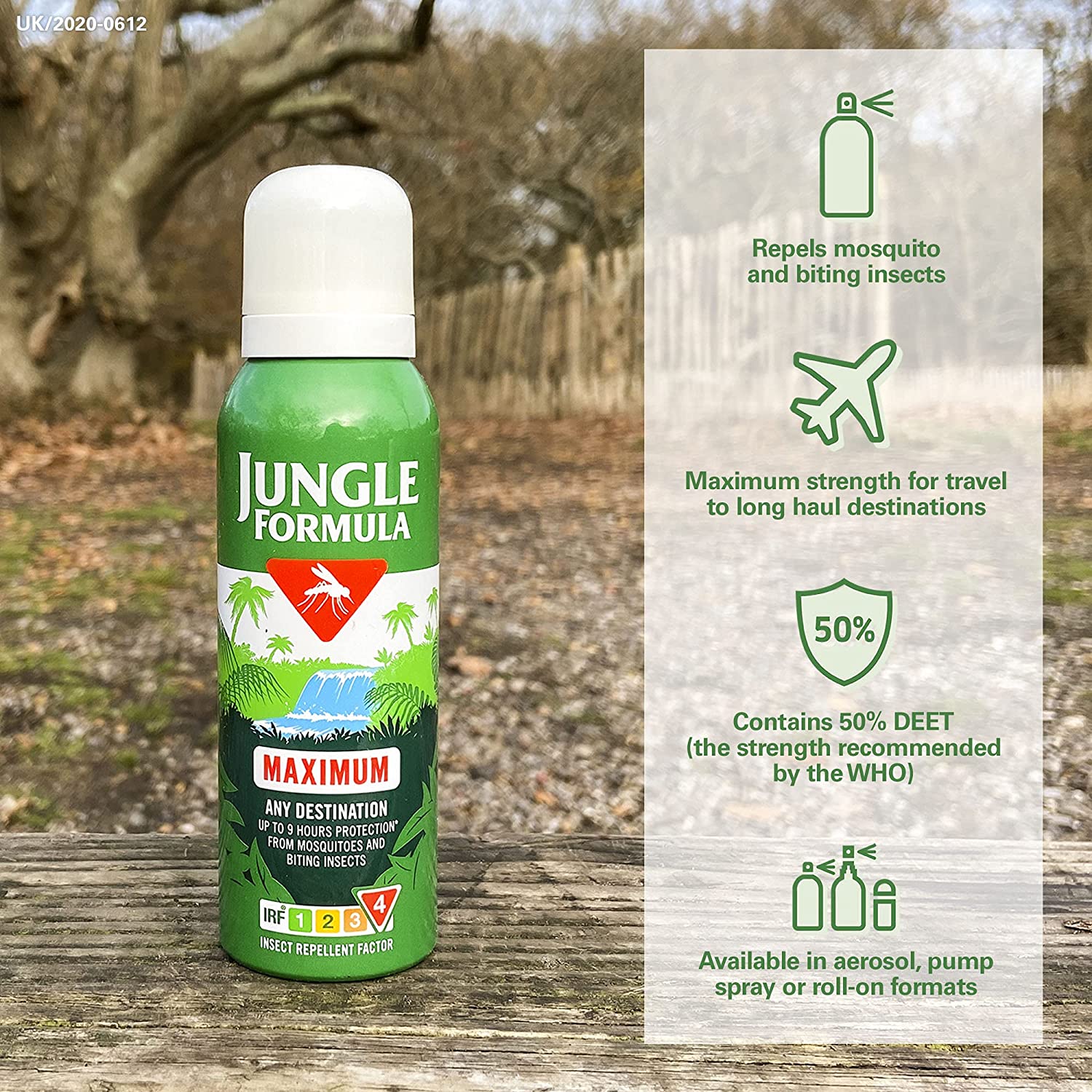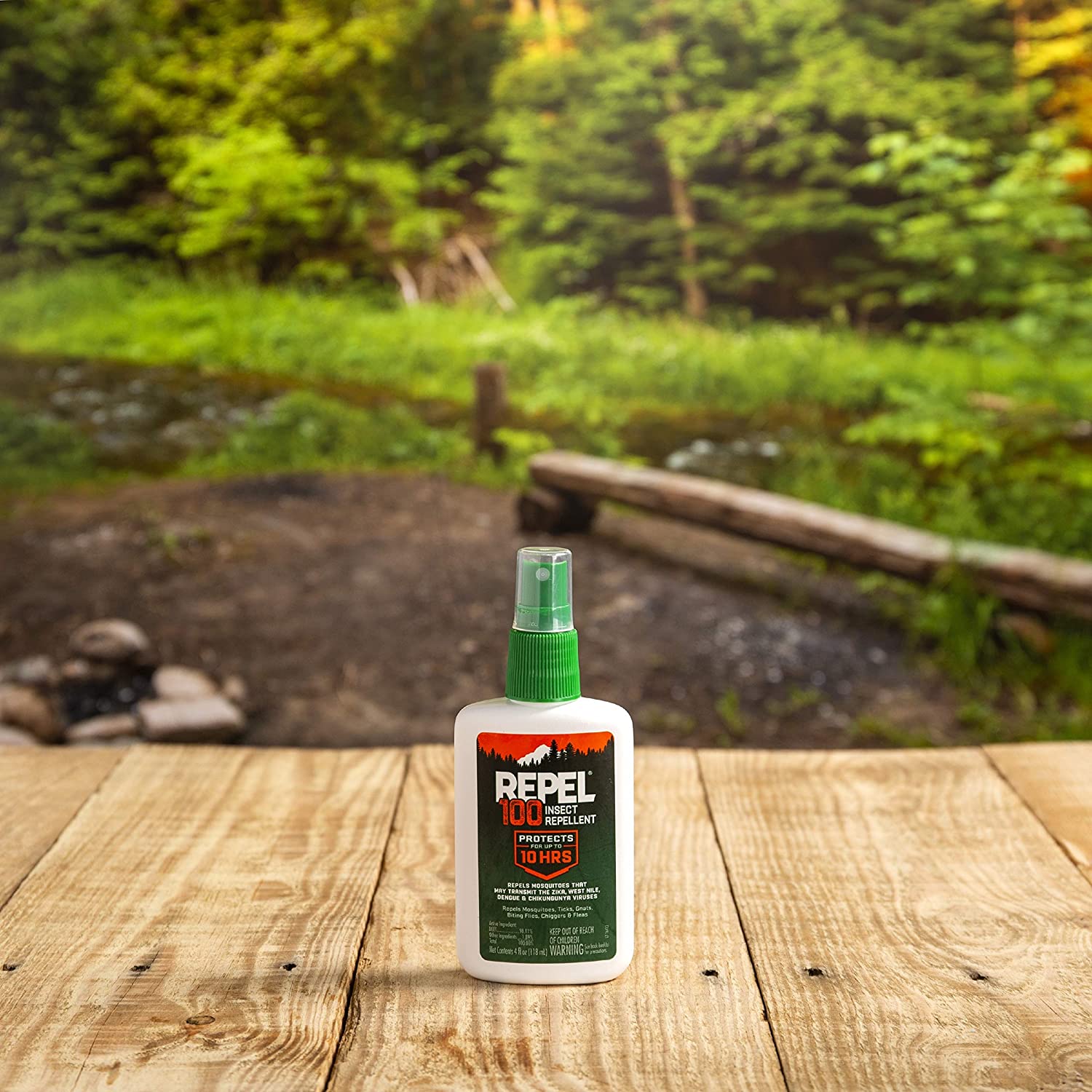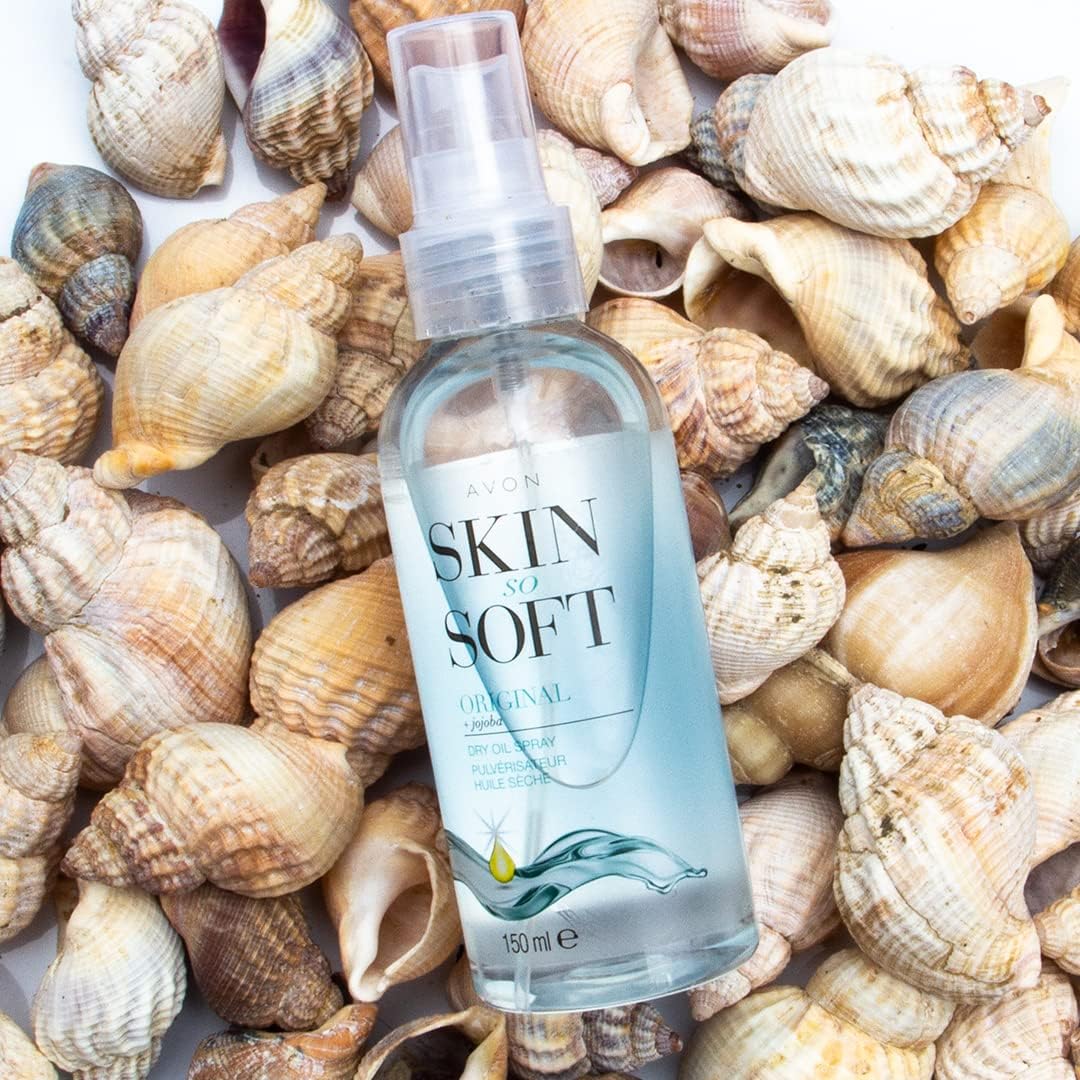Guide
Best Mosquito Repellent UK 2024
Mosquitoes are a common nuisance in the UK, especially during the warmer months. While they may not pose as significant of a health threat as in some tropical regions, it is still important to choose an effective mosquito repellent to protect yourself from their irritating bites. Selecting the right repellent involves considering various factors to ensure maximum effectiveness and safety.
When choosing a mosquito repellent, there are several key factors to keep in mind. Firstly, it’s important to assess the prevalence of mosquitoes in your area. Some regions in the UK, particularly those near water bodies or with dense vegetation, may have higher mosquito populations compared to others. Understanding the local prevalence will help you gauge the necessity and intensity of protection required.
The significance of selecting an effective mosquito repellent cannot be overstated. Mosquitoes are not only annoying pests but can also transmit diseases. While the risk of mosquito-borne diseases in the UK is relatively low, there have been occasional cases of diseases like West Nile virus and, more commonly, bites leading to itching, swelling, and discomfort. By choosing an appropriate repellent, you can significantly reduce the likelihood of mosquito bites and potential health risks.
When considering repellents, it is crucial to evaluate various factors to make an informed decision. Some key aspects to consider include the active ingredients, safety and health considerations, effectiveness against mosquitoes, user-friendliness, and environmental impact. By examining these factors, you can identify the best mosquito repellent for your needs, balancing efficacy with personal preferences and values.
II. Understanding Mosquitoes in the UK
- Species commonly found in the UK: In the UK, several species of mosquitoes can be encountered. The most common species include the common mosquito (Culex pipiens), which is prevalent throughout the country, and the mosquito Aedes detritus, which is more commonly found in Scotland and parts of northern England. Additionally, the tiger mosquito (Aedes albopictus) has made occasional appearances in the country, primarily through imported goods or via transportation.
- Mosquito-borne diseases in the region: While mosquito-borne diseases are not as widespread in the UK as in tropical regions, there are still a few diseases that can be transmitted by mosquitoes. The most notable disease is West Nile virus, which is primarily transmitted by the Culex mosquito. However, the number of West Nile virus cases reported in the UK is relatively low. Other mosquito-borne diseases reported in the UK include the occasional cases of dengue fever and chikungunya, usually acquired through travel to affected regions.
- Mosquito habits and peak activity times: Mosquitoes are most active during the warmer months in the UK, typically from late spring to early autumn. They are particularly active during dawn and dusk but can also bite throughout the day, especially in shaded areas or near stagnant water sources. Understanding their peak activity times helps in planning outdoor activities and taking appropriate protective measures. Mosquitoes are attracted to areas with standing water, so it’s important to eliminate any potential breeding sites, such as uncovered containers, flower pots, or clogged gutters, to reduce their population.
By familiarizing yourself with the common mosquito species in the UK, the potential diseases they may carry, and their activity patterns, you can better understand the need for mosquito repellents and take appropriate measures to protect yourself from their bites.
III. Key Considerations for Selecting a Mosquito Repellent
A. Safety and Health
- Approved ingredients and regulatory standards: When choosing a mosquito repellent, it is crucial to look for products that contain approved ingredients and adhere to regulatory standards. In the UK, the most commonly approved active ingredients for mosquito repellents are DEET (N,N-Diethyl-meta-toluamide) and picaridin (also known as icaridin). These ingredients have been extensively tested for safety and effectiveness.
- Potential risks and allergic reactions: While mosquito repellents are generally safe to use, it is essential to be aware of potential risks and allergic reactions. Some individuals may experience skin irritations or allergic responses to certain repellent ingredients. To minimize the risk, perform a patch test on a small area of skin before applying the repellent more broadly. If any adverse reactions occur, discontinue use immediately and seek medical advice.
- Safe options for children and pregnant women: When considering mosquito repellents for children and pregnant women, it is advisable to consult with healthcare professionals. DEET and picaridin repellents are generally considered safe when used as directed, but it is recommended to use lower concentrations (typically below 30%) for children. Alternatively, repellents containing the active ingredient IR3535 or natural repellents with ingredients like citronella or lemon eucalyptus oil can be suitable options for these groups.
B. Effectiveness
- Types of repellents (sprays, lotions, creams, etc.): Mosquito repellents are available in various forms, including sprays, lotions, creams, and sticks. Each type has its advantages and considerations. Sprays offer easy application and coverage over large areas, while lotions and creams provide longer-lasting protection and can be more suitable for specific body parts. Consider the convenience and effectiveness of different types based on your needs and preferences.
- Active ingredients and their effectiveness: The effectiveness of a mosquito repellent largely depends on its active ingredients. DEET and picaridin are considered highly effective against a wide range of mosquito species. DEET provides long-lasting protection, even in high-risk areas, while picaridin is known for its effectiveness against mosquitoes and other biting insects. Natural repellents may contain ingredients like citronella, lemon eucalyptus oil, or lavender oil, which can provide varying degrees of protection.
- Duration of protection and reapplication requirements: The duration of protection offered by a repellent varies based on the concentration of active ingredients, formulation, and environmental conditions. Higher concentrations of DEET or picaridin generally provide longer-lasting protection. However, factors such as perspiration, humidity, and mosquito activity can affect the effectiveness and duration. It is important to read the product instructions and consider reapplying the repellent as recommended for optimal protection.
C. User-Friendliness
- Application methods and ease of use: Mosquito repellents come in different application methods, such as spray bottles, pump dispensers, or roll-ons. Consider the ease of use and practicality of the application method. Sprays offer quick and even coverage, while roll-ons can be more convenient for targeted application. Choose a product that aligns with your preferred application method and is user-friendly for your specific needs.
- Fragrance and texture preferences: Repellents may have different fragrances and textures, which can vary depending on the active ingredients and additional additives. Some people may have sensitivities or preferences regarding scents, so it’s important to choose a repellent with a fragrance that is pleasant or unobtrusive to you. Texture preferences also vary; some may prefer lightweight, non-greasy formulations, while others may find thicker creams more moisturizing and suitable.
- Compatibility with other skincare products: If you have a skincare routine or use other products like sunscreen or moisturizers, consider the compatibility of the mosquito repellent with these products. Some repellents may be formulated to be compatible with sunscreen, allowing you to apply both simultaneously. It is advisable to check product labels or consult with a healthcare professional to ensure compatibility and effectiveness when using multiple products together.
By considering the safety, effectiveness, and user-friendliness aspects of mosquito repellents, you can make an informed choice that suits your specific needs and preferences. Remember to follow the instructions provided by the manufacturer for optimal protection and use repellents in conjunction with other preventive measures, such as wearing protective clothing and reducing mosquito breeding sites in your surroundings.
D. Environmental Impact
- Considerations for eco-friendly options: When selecting a mosquito repellent, it is important to consider the environmental impact of the product. Look for repellents that have eco-friendly considerations in their formulation and production processes. This may include factors such as sustainable sourcing of ingredients, responsible packaging, and commitments to reducing carbon footprint.
- Biodegradable or non-toxic formulations: An eco-friendly mosquito repellent should ideally have biodegradable properties, meaning that it can break down naturally without leaving harmful residues in the environment. Additionally, opting for repellents with non-toxic formulations reduces the risk of contaminating water sources or harming non-target organisms.
- Balancing effectiveness with environmental consciousness: Finding a balance between effectiveness and environmental consciousness is crucial. Some natural repellents may have lower efficacy compared to synthetic options, so it’s important to evaluate your individual needs and risk factors. By considering the level of mosquito activity in your area and personal preferences, you can choose a repellent that provides adequate protection while minimizing environmental impact.
Top 5 Best Mosquito Repellents in the UK
1. Jungle Formula Maximum Repellent Aerosol

The Jungle Formula Maximum Repellent Aerosol is a true champion when it comes to protecting against mosquitoes, biting insects, and ticks. With its maximum strength formula, it offers an impressive 9 hours of total protection, making it a must-have for long-haul travelers and those heading to tropical destinations. Rated at an insect repellent factor of 4, it sits at the top of the IRF scale, ensuring unbeatable defense. The 50% DEET and 1% Geraniol composition provides maximum protection for both adults and children over 12. As the UK’s No.1 selling insect repellent brand, Jungle Formula is your trusted outdoor companion, keeping insects at bay while you enjoy the great outdoors.
2. Smidge Insect Repellent

The Smidge Insect Repellent is a force to be reckoned with, offering powerful and dependable protection for up to 8 hours. Whether you’re facing midges, mosquitoes, horse flies, sand flies, fleas, or ticks, this repellent has got you covered. Its water- and sweat-resistant formula ensures that you stay protected even during outdoor activities. Suitable for adults, children over 30 months, and even pregnant women, it provides peace of mind for the whole family. Not only is it highly effective, but it also boasts a non-sticky, moisturizing texture and a pleasant fragrance, making it a joy to use. Don’t leave home without Smidge by your side!
3 Repel 100 Insect Repellent

The Repel 100 Insect Repellent is a powerhouse when it comes to protecting against a wide range of insects. With its potent formula containing 98.11% DEET, it creates a robust barrier against mosquitoes, including those carrying harmful viruses like Zika and West Nile, as well as ticks, gnats, biting flies, chiggers, and fleas. Offering an impressive 10 hours of protection, you can enjoy the great outdoors without worrying about insect bites. The convenient pump spray makes it ideal for outdoor travel, easily fitting into your adventure gear. Don’t let bugs spoil your fun – trust Repel 100 to keep them at bay and embrace your outdoor adventures with confidence.
4 Avon Skin So Soft Dry Oil

Avon Skin So Soft Dry Oil Body Spray is a travel essential that you shouldn’t leave home without. This bestselling product comes in a convenient set of 2 x 150 ml bottles, ensuring you’re well-equipped for your holiday adventures. With its mosquito and insect repellent properties, you can say goodbye to those bothersome bites. Infused with natural oils, it not only provides protection but also leaves your skin feeling nourished and smooth. Just remember to check the PAO symbol to determine the product’s expiry time after opening. Don’t let bugs ruin your trip – trust Avon Skin So Soft to keep them at bay and enjoy a bite-free getaway.
5 Pyramid Trek 50

The Pyramid Trek 50 Insect/Mosquito Repellent is a robust solution for warding off insects. With its strong 50% DEET formula, it provides reliable protection against mosquitoes and other biting insects. One application can last up to 6 hours, ensuring peace of mind during your outdoor adventures. Whether you’re embarking on a tropical getaway or enjoying a family holiday, this repellent is your trusty companion. It is suitable for children over 12 years of age, making it a versatile choice for the whole family. Rest assured, this UK-made product has been thoroughly tested and approved for your protection. Say goodbye to pesky insects and hello to worry-free exploration with Pyramid Trek 50.
V. Types of Mosquito Repellents
A. DEET-Based Repellents
- Overview of DEET and its efficacy: DEET is one of the most widely used active ingredients in mosquito repellents. It has a proven track record of effectiveness against various mosquito species. DEET works by interfering with the mosquitoes’ ability to detect and land on human skin, thereby reducing the likelihood of bites. It provides long-lasting protection, especially in areas with high mosquito activity.
- Popular DEET-based repellent brands in the UK: Some popular DEET-based mosquito repellent brands available in the UK include Jungle Formula, Repel, and Incognito. These brands offer a range of DEET concentrations and formulations to cater to different needs and preferences.
- Pros and cons of DEET-based repellents:
Pros:- High efficacy against a wide range of mosquito species
- Long-lasting protection
- Available in different concentrations for varying needs
- Widely available in the market
Cons:
- Some individuals may have skin sensitivities or allergic reactions
- Can cause damage to certain materials, such as plastics and synthetic fabrics
- Strong odor and greasy texture in higher concentration formulations
B. Picaridin-Based Repellents
- Understanding picaridin and its effectiveness: Picaridin is an effective alternative to DEET, offering comparable protection against mosquitoes. It works by masking human scents that attract mosquitoes, making it harder for them to locate and bite. Picaridin has a milder odor compared to DEET and is less likely to cause skin irritations.
- Noteworthy picaridin-based repellent products in the UK: In the UK market, you can find picaridin-based mosquito repellents from brands such as Avon Skin So Soft, Mosi-Guard, and Lifesystems. These products come in various concentrations and formulations to suit different preferences and needs.
- Advantages and limitations of picaridin-based repellents: Advantages:
- Effective against a wide range of mosquitoes
- Mild odor and less likely to cause skin irritations
- Safe for use on clothing and gear
Limitations:
- Duration of protection may be shorter compared to DEET in some cases
- Availability may be limited compared to DEET-based repellents
C. Natural Repellents
- Plant-based ingredients and their repellent properties: Natural mosquito repellents often contain plant-based ingredients known for their mosquito-repellent properties. Common examples include citronella, lemon eucalyptus oil, lavender oil, and tea tree oil. These ingredients work by masking human scents or repelling mosquitoes through their strong fragrance.
- Prominent natural repellent options available in the UK: Some well-known natural repellent options available in the UK include Incognito, Mosquito Milk, and Smidge. These products use natural ingredients and are formulated to provide protection against mosquito bites.
- Considerations when using natural repellents:
- Natural repellents may provide varying levels of protection and may need to be reapplied more frequently compared to synthetic options.
- Some individuals may be sensitive to certain plant-based ingredients, so it’s important to perform a patch test before use.
- Natural repellents may have a shorter shelf life compared to synthetic repellents, so check the expiration date before purchasing.
By considering the environmental impact, efficacy, and different types of mosquito repellents available in the UK, you can make an informed decision that aligns with your preferences and needs. Remember to follow the instructions provided by the manufacturers for optimal use and protection against mosquitoes.
D. Other Alternatives
- Mosquito-repelling clothing and accessories: In addition to using mosquito repellents, you can consider wearing clothing and accessories specifically designed to repel mosquitoes. These items are treated with insecticides like permethrin, which effectively repel mosquitoes upon contact. Mosquito-repelling clothing and accessories include shirts, pants, socks, hats, and even mosquito nets for camping or outdoor activities.
- Ultrasonic devices and electronic repellents: Ultrasonic devices emit high-frequency sound waves that are claimed to repel mosquitoes. However, the effectiveness of these devices in repelling mosquitoes is debated among experts. Electronic repellents, on the other hand, release repellent substances into the air, creating a barrier against mosquitoes. While these devices may offer some level of protection, their efficacy varies, and they should be used in conjunction with other preventive measures.
- Indoor and outdoor mosquito control options: To complement the use of mosquito repellents, you can implement additional control measures to reduce mosquito populations in and around your living spaces. Indoor options include using window screens, mosquito nets for beds, and mosquito traps. Outdoor options involve eliminating stagnant water sources, such as birdbaths or clogged gutters, to prevent mosquito breeding. Additionally, using outdoor insecticides or fogging treatments in designated areas can help control mosquito populations.
How we tested
Our testing process involved conducting experiments in hot and humid conditions, specifically targeting areas with high mosquito activity like canals, rivers, and stagnant water. Despite these challenging conditions, we experienced minimal mosquito bites, thanks to the effectiveness of the following sprays. Alongside effectiveness, we also considered factors such as ease of application (we discovered a preference for roll-on repellents), fragrance, and the overall design of the product packaging.
V. Choosing the Right Mosquito Repellent for Your Needs
Assessing individual requirements and preferences: Consider factors such as the level of mosquito activity in your area, the duration and intensity of outdoor activities, and any personal sensitivities or health concerns. This assessment will help determine the appropriate level of protection needed and guide you in selecting the most suitable mosquito repellent.
Recommendations based on specific scenarios: Different scenarios may call for specific types of mosquito repellents. For outdoor activities like hiking or camping, long-lasting and robust repellents with higher concentrations of active ingredients, such as DEET or picaridin, may be recommended. For everyday use, lighter formulations or natural repellents could be sufficient. When traveling to areas with known mosquito-borne diseases, consulting with healthcare professionals for specific recommendations is crucial.
Tips for effective application and mosquito bite prevention: Follow the instructions provided by the manufacturer when applying mosquito repellents. Apply the repellent evenly to exposed skin, avoiding contact with eyes, mouth, and open wounds. Reapply as necessary, especially after swimming or sweating. Supplement the use of repellents with other preventive measures, such as wearing long sleeves and pants, using mosquito nets, and avoiding peak mosquito activity times.
VI. Conclusion
Selecting a reliable mosquito repellent is crucial for protecting yourself from mosquito bites and potential mosquito-borne diseases. By considering factors such as safety, effectiveness, user-friendliness, and environmental impact, you can make an informed decision when choosing a mosquito repellent that suits your needs and preferences.
In the UK market, DEET-based repellents, picaridin-based repellents, and natural repellents are popular options. DEET provides long-lasting and effective protection, while picaridin offers a milder alternative with comparable efficacy. Natural repellents utilize plant-based ingredients and cater to those seeking more eco-friendly options.
Additionally, other alternatives such as mosquito-repelling clothing, ultrasonic devices, and mosquito control measures can complement the use of mosquito repellents for enhanced protection.
Remember to assess your individual requirements and preferences, consider specific scenarios, and follow proper application techniques for optimal mosquito bite prevention. By making an informed decision and taking necessary precautions, you can enjoy outdoor activities while minimizing the risk of mosquito bites and potential health issues.

